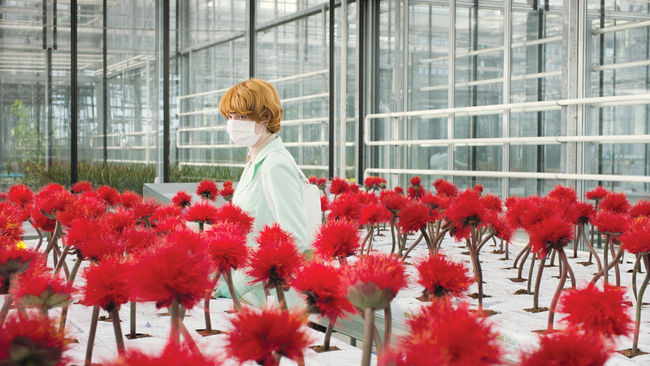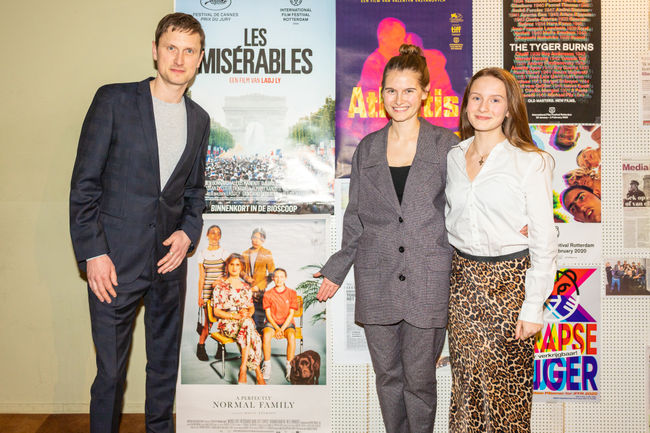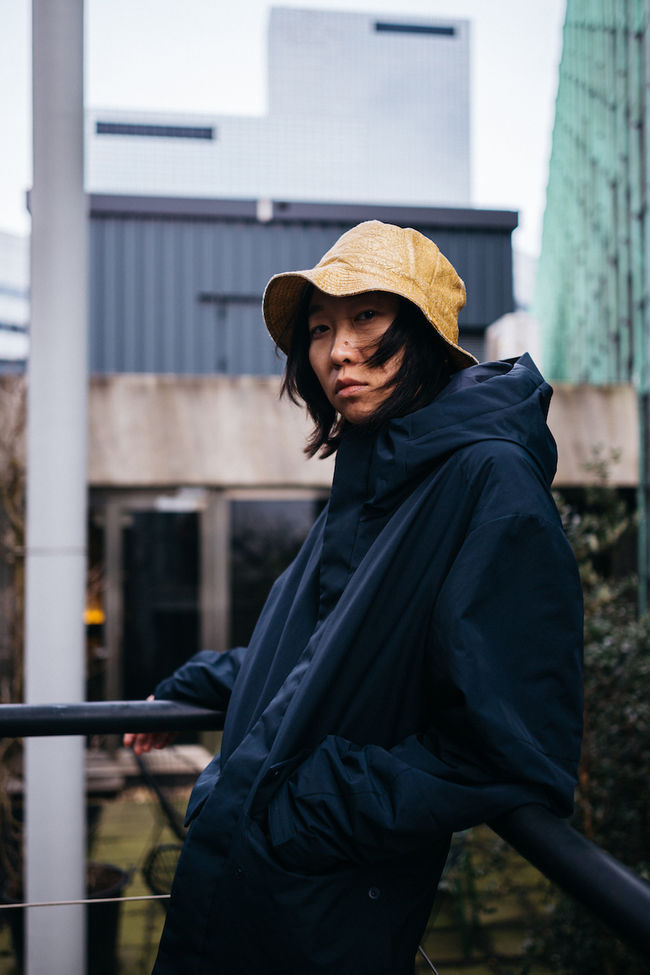The spaceship as jail
13 March 2019
Claire Denis on her latest film High Life
Claire Denis has been one of the shining stars of arthouse cinema for a long time and still manages to keep breaking ground – for instance with her first English-spoken film High Life, an extraordinary science fiction film that unmistakably bears her signature.
With her unflinching, sensitive films, Claire Denis is considered to be one of the most important European film authors of our time. Her versatile oeuvre moves freely between poetic minimalism and more conventional drama, but also includes excursions into genres such as vampire horror, or, in the case of High Life, science fiction. “Years ago, a producer wanted to know if I would be able to direct an English-speaking film. I said yes, if it doesn't take place in a place where I could make it in French”, says Denis. “As a joke I suggested outer space, where there are really only two languages: Russian and English, or rather, American. It took the producer by surprise; he told me he was thinking rather of a love story with a femme fatale. O.K., I answered, then how about a femme fatale in outer space? For me, the little baby daughter of Robert Pattinson's character in High Life is a femme fatale in a way.”
Not surprisingly, a science fiction film by Claire Denis is unlike any other science fiction film. That's immediately clear in the opening shot – we don’t see planets or high-tech machinery, but we see nature: a garden. “The idea was to start not the very beginning of the story. I wanted to be far away from the solar system, in a rusty old spaceship. The only growing thing here, apart from the baby, is this garden with its intense greens and yellows. I've been reading a lot about space and I realised that for a space mission it is important to be able to grow plants, vegetables and fruit, because you can't live on dried powders only. This shot of the soil, the little mist falling on the leaf, makes it like a small paradise on the ship. Like the biblical Eden.”
Comparing her film to another sci-fi work with a rather unconventional start, Kubrick's 2001: A Space Odyssey, is not met by an enthusiastic response. Denis feels more connected to the sci-fi films of Tarkovski than to Kubrick's masterpiece. “Kubrick made a symphony on what is to be human, he recreated the story of humanity from the beginning to the end.” Another distinction: “American space movies are military films. It's about people in nice, clean uniforms, on a military mission, they go out there and come back. That is not the case in High Life. The crew members are not soldiers, but prisoners, and the spaceship is a jail, like Guantanamo. They have been sentenced to death, they are lab rats. You know, science fiction is not just one story, it’s a million different stories.”
I wanted to be far away from the solar system, in a rusty old spaceship.
— Claire Denis
“When we first wrote the script, I envisioned the main character as a man in his forties, devoid of hope. He accepted the space trip as a diversion from death row. Somebody who was tired of life. It's terrible to say, but I had Philip Seymour Hoffman in mind to star. But then he was tired of life himself, and he died.” It was the casting agent who kept pressing Denis to meet with this young actor: Robert Pattinson, who reached stardom thanks to the Twilight franchise. Denis was reluctant. “Way too young, way too iconic. But while we were waiting to get the financing together – which took years – Robert kept visiting me in Paris. I'm getting older every month, he told me. In the end you will accept me.” And that exactly what happened. “Maybe he is still too iconic, but I couldn't have made the film without him. Robert was really passionate about this project and fearless and very committed. He waited five years.”
The story – and some scenes in particular – make quite an impact on the viewer. “It’s good if the images are haunting you”, says Denis. “They are still haunting me and the actors as well. That’s the purpose of cinema. To act and to direct is all about sharing emotions. And emotions do linger.”
High Life will be in the theatres 14 March!













